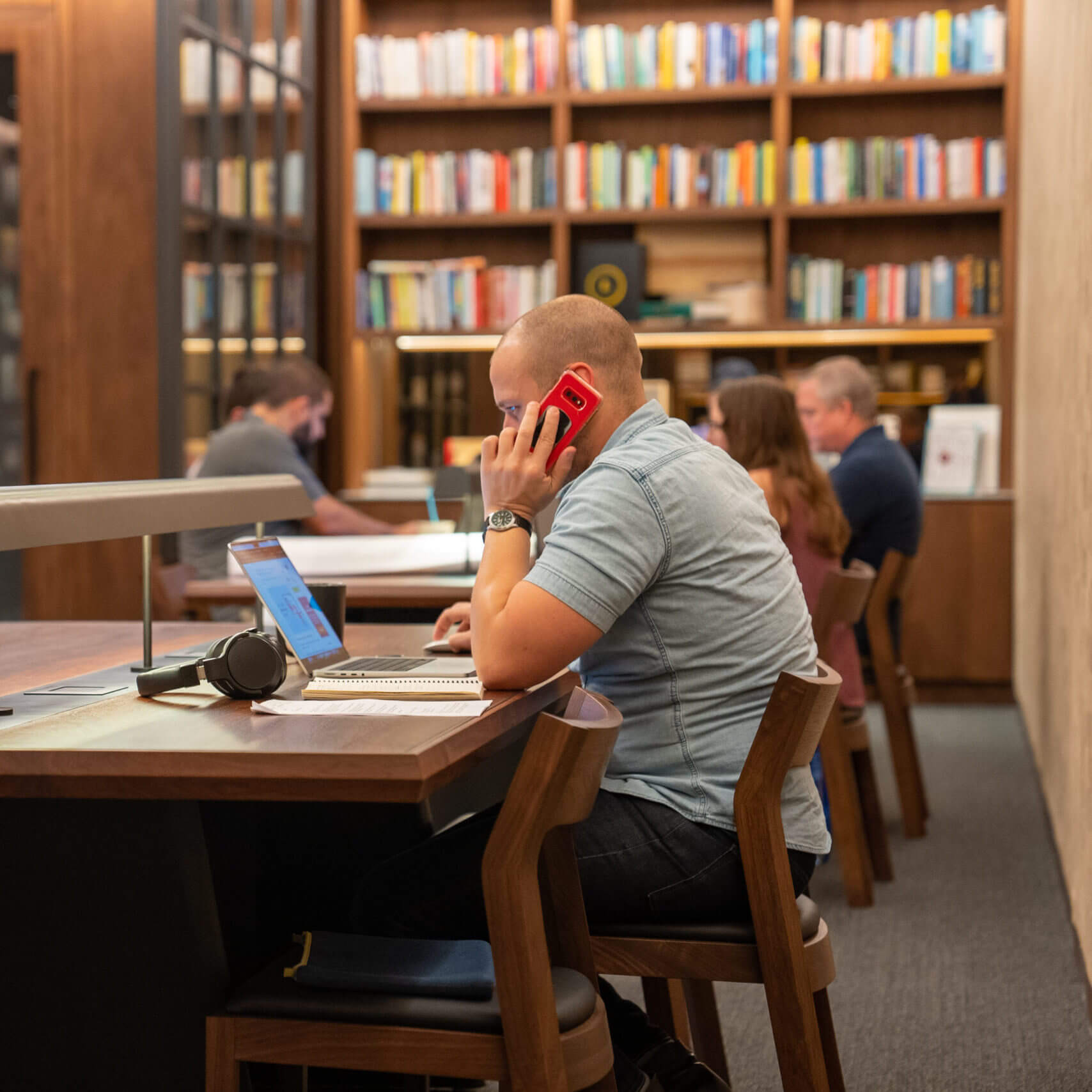

The Exclusive Co-Working Clubs That Actually Deliver on WeWork’s Promise
WeWork’s meteoric rise was built on a promise. That promise was a workplace where, for a few hundred dollars a month, you could potentially meet your next business partner. But as WeWork continues to teeter on the edge of bankruptcy, most recently having opted to withhold approximately $95.2 million of interest payments due the first week of October, other flexible workspace providers have stepped up to help fulfill that promise. Unlike WeWork, though, these companies are much more exclusive—and expensive. The latest trend in flexible workspace is private work clubs.
Unlike traditional flex workspaces, private work clubs seek to provide members with an upscale, full-life experience addressing work, social, and wellness needs. “The key is going beyond the ordinary and creating something that no other building is offering,” Brett Williams, a senior managing director with Cushman & Wakefield’s Asset Services platform. Flex workspace provider Knotel, a division of commercial real estate services giant Newmark, kicked off its private club concept in the fall of 2022 across the pond with the debut of a 22,000-square-foot space at London’s Old Sessions House, a repurposed, 18th-century courthouse. Members of Old Sessions House are privy to a private café, a bar, and something called the Chairman’s Room, which can be transformed from a state-of-the-art meeting room into a cozy dining room. Scheduled happy hours, business masterclasses, and relaxation workshops add to the club-like atmosphere. Knotel’s Old Sessions House acts not only as an upscale office space with higher-end amenities but also as a platform for member businesses and office space users to socialize and collaborate.
It’s not just flex space companies getting in on the work club game. Fitness center provider Life Time Inc. (formerly known as Life Time Fitness before its 2017 rebranding as a health and lifestyle company) is a bit of a maverick in the work club sphere. Over the last six years, it has steadily expanded its portfolio of work clubs under the name Life Time Work. These clubs are typically situated in the same building as a Life Time health club, providing members with dedicated workspaces, conference rooms, food and beverage options, and, of course, access to the fitness center. This combination creates a unique health and wellness-centric work experience for professionals.
One of the newer entrants to the blossoming world of work clubs is perhaps the most expensive, Colette, which can be found high in the clouds of Manhattan’s GM Building. A vision cooked up by developer Edmund Safra and restaurant proprietor Juan Santa Cruz, Colette requires that members purchase a stake in the club in the form of a $125,000 initiation fee, as well as pay monthly membership dues exceeding $30,000. In addition to premier private offices, a Colette membership comes with such amenities as conference rooms, a members’ lounge, administrative support, and a private entrance at the skyscraper’s street level.
Family-owned real estate firm The Connell Company, which is in the midst of a $500 million repositioning of The Park, its onetime suburban office campus that has emerged into a mixed-use destination in Berkeley Heights, New Jersey, saw the advantage of adding a work club to its live-work-play property and created Round Table Studios, a co-working and social membership club open to the office users and residents of The Park, as well as its neighbors in the community. The 40,000-square-foot social club-like environment offers its members flexible workspaces, meeting and event space, an exclusive membership restaurant and bar, social activities, wellness programming, and access to additional amenities at the campus’s office buildings. “Round Table Studios is integral to The Park’s goal of offering luxury workplace solutions to all user types, including individuals, small companies, and large corporations,” Shane Connell, executive vice president of The Connell Company, said. “As an example of its success, we had one company rent a studio at RTS, and after six months, they decided to lease an entire 428,000-square-foot building in The Park for 20 years.” Currently, RTS boasts a 92 percent occupancy level, a figure hard to come by in the traditional office or co-working arenas today. “We believe that highly amenitized, private co-working clubs that offer flexible workspaces, social programming, and meeting spaces are the future of co-working,” Connell added.
The private work club concept, with its upper-scale office offerings, exclusive amenities, hospitality-centric services, and programmable environment, all attainable via flexible lease options, takes conventional co-working to a more refined level. They’re workplace social clubs, where others likely share similar success. The “curation” of who can be a member is a way of helping ensure that the people you encounter there might actually be good candidates for business partners. Unlike WeWorks, these private clubs are not for everyone, but in the end, that might be their largest selling point.